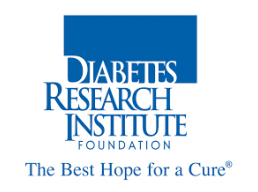Led by David Baidal, MD, the TrialNet team at University of Miami is dedicated to preventing type 1 diabetes and stopping disease progression by preserving insulin production before and after diagnosis.
Our Team

David Baidal, MD
David Baidal, M.D., is Assistant Professor of Medicine in the Division of Endocrinology, Diabetes, & Metabolism University of Miami, Miller School of Medicine. Dr. Baidal received his medical degree from Universidad Católica Santiago de Guayaquil in Ecuador. He completed his internal medicine residency at Jackson Memorial Hospital, University of Miami and then went on to complete a clinical and research fellowship in Endocrinology, Diabetes & Metabolism at the Beth Israel Deaconess Medical Center / Joslin Diabetes Center in Boston.
Dr. Baidal is a former member of the Clinical Islet Transplant Program at the Diabetes Research Institute, having trained under Dr. Rodolfo Alejandro and Dr. Camillo Ricordi, where his research primarily focused on the identification of metabolic markers predictive of islet allograft dysfunction.
Following completion of his clinical fellowship, he has now rejoined the Clinical Cell Transplant Program at the Diabetes Research Institute, where he will focus on the management of islet transplant recipients and the development of new clinical trials for islet transplantation and testing novel therapies for the treatment of new onset type 1 diabetes. Dr. Baidal will also be involved in the care of subjects with endocrine problems in particular type 1 diabetes
Carlos Blaschke
Regional Affiliates
Affiliates provide opportunities for people who do not live near a TrialNet Clinical Center. The affiliate sites listed below work with University of Miami to offer convenient participation in our research programs
Research Studies
If you have a relative with T1D, you may be eligible for risk screening that can detect the early stages of T1D years before symptoms appear. More
Depending on your risk screening results, you may be eligible for monitoring. We’ll monitor you for disease progression and let you know if you become eligible for a study. More
We are testing the drug hydroxychloroquine (HCQ) to see if it can delay or prevent early stage T1D (stage 1) from progressing to abnormal glucose tolerance (stage 2) and ultimately prevent clinical diagnosis (stage 3). HCQ is already used to reduce symptoms and progression of other autoimmune diseases, such as rheumatoid arthritis and lupus. This is the first study to see if it can prevent or delay T1D. Details
TrialNet tested the drug abatacept to see if it could delay or prevent stage 1 T1D (two or more diabetes-related autoantibodies, but normal blood sugar) from progressing to stage 2 (abnormal blood sugar) or to stage 3 (clinical diagnosis). In an earlier study in people newly diagnosed (stage 3), participants treated with abatacept had 59% better insulin production and a 9.6-month average delay in progression of insulin loss compared to those who received placebo. That difference extended out to 3 years. Details
If you are diagnosed with T1D while participating in one of our prevention studies, we’re still here for you. You can continue to receive personal monitoring while helping us learn more. More





